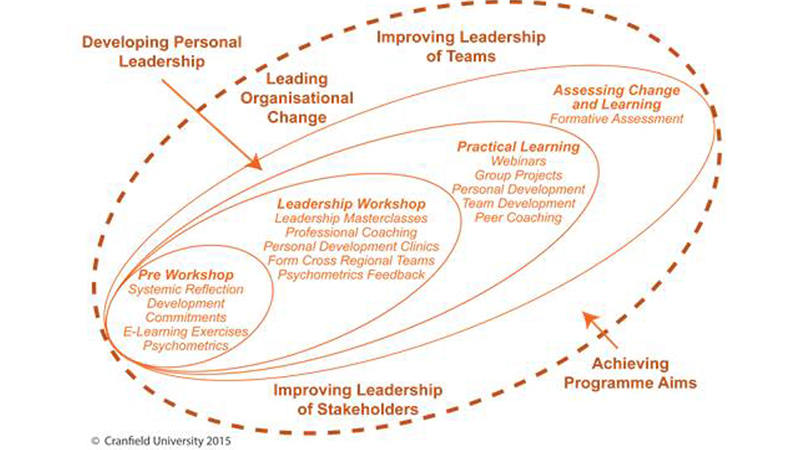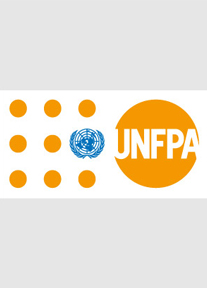Leadership and Management Programme
Facts and Figures
- 330 participants represented over 70 different nationalities.
- Programme delivery took place in 5 different continents.
- Each programme lasted between 5 – 6 months.
The organisation
UNFPA (the United Nations Population Fund) is the lead UN agency for delivering a world where every pregnancy is wanted, every birth is safe and every young person’s potential is fulfilled. Since starting in 1969 the UNFPA has been working in over 150 countries to expand the possibilities for women and young people to lead healthy and productive lives. The work of UNFPA is based on the premise that all human beings are entitled to equal rights and protections. Women and young people are the focus as these are groups whose ability to exercise their right to sexual and reproductive health is often compromised. This complex and challenging mandate is delivered in some of the most culturally sensitive and hostile environments on the globe.
The business issues
In 2011 internal and external evaluations had shown a deficit of UNFPA leaders’ performance in managing staff members and teams, as well as managing internal and external stakeholders, especially implementation partners. The arrival of a new Executive Director provided an ideal starting point for a new and continuous leadership development programme (LEAD UNFPA). The aim was to partner with several suppliers on a fully blended solution, to which UNFPA leaders had to apply by showing the value their leadership would bring to the organisation after going through the programme.
The development challenge
Stronger leadership from the top leaders within UNFPA was a crucial requirement if the objectives the organisation had to deliver were to be met. Core organisational development aims and standards were adhered to, while the programme was customised, from a national to individual level, during deployment to take into consideration contextual factors. This meant each participant received a wholly customised and personalised development path, unique to them as leaders, that was aligned to UNFPA aims.
Cranfield was selected from a competitive tender process as the lead partner who would be able to develop and deliver a programme that would strengthen the leadership gaps identified.
Why the research was commissioned
Three key leadership gaps were identified after analysis by Cranfield in conjunction with UNFPA:- Proactive leadership of external and internal stakeholders
- Stronger leadership of their teams
- Greater collaboration to drive innovation and better practices across the organisation
These became the focus of the LEAD programme.
Greater quality of engagement with external stakeholders was identified as a crucial lever to achieve strategic aims, as much that the UNFPA delivers is done so through partner organisations. Stronger leadership of people was vital to enthuse and motivate those operating in challenging and often dangerous environments. Lastly, working more collaboratively across the organisation was recognised as a crucial driver of innovation and effectiveness.
LEAD Programme Roadmap
The programme blended the following elements together over a 5-6 month period:
- Tangible development objectives, connected to current personal leadership challenges
- Group and team objectives based on actual organisational challenges
- Workshops mixing short content lectures, discussions and group exercises
- Delivered within existing UNFPA regions and Head Office areas
- Mixed e-learns, webinars, psychometrics, videos and UNFPA ‘faculty’
- Individual and group achievements documented.

Why Cranfield?
The programme mixed real life personal, team and organisational development objectives. This was delivered using a Networked Learning approach in five different continents for a population of 330 senior leaders. Impact measures were built up from the tangible results individuals and groups achieved by being on the programme.
Over 75% of participants exceeded personal objectives set at the outset of their involvement in a cohort. Examples of areas impacted by the programme include engaging more effectively with staff, improving working practices, increasing the agency’s external profile and managing upwards more skilfully.
Cross functional teams learned to work together to make tangible changes to working practices and results, growing to an 80% ‘completion of objectives’ rate by the end of the programme. The programme was responsible for a range of innovative initiatives which are impacting actual organisational results and outcomes.
”Cranfield not only provided us with cutting edge guidance on what leadership means in UNFPA’s context, their faculty also cared deeply for the successful completion of the programme by our individual leaders, and they were thus able to demonstrate real impact.”
Markus Voelker
Learning & Training Specialist, UNFPA
Making a difference
Participant quotes:
‘Getting a more cohesive and engaging office takes time and patience. A lot of investment in teams is a must to get change in the office, both in mind-set and in delivering on commitments. When I first came the staff were operating in silos, had no idea what other units were doing, felt it was not their business. People never spoke up, were reserved and just did the basics. Coming back from LEAD workshops gave me the push to change this’.
‘I’m more confident and more focused. I follow up with people more to get things done – hold people to account more. People are coming to realise that when I want things done I mean it. It’s the small things. Creating a learning culture. Make them feel more value from their job.’
‘I approach things differently – more time spent on motivating and listening to my team – resulting in greater sense of engagement, less staff turnover – which led to increased project funding and donors feeling good about UNFPA’.
